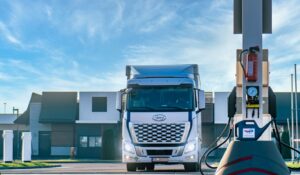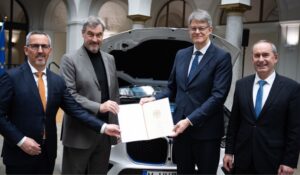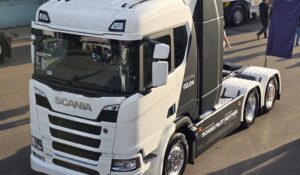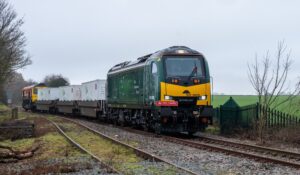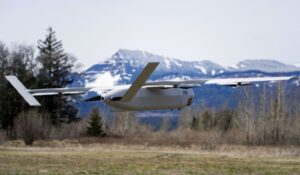UK Military installs hydrogen generators to charge its electric vehicle (EV) fleet
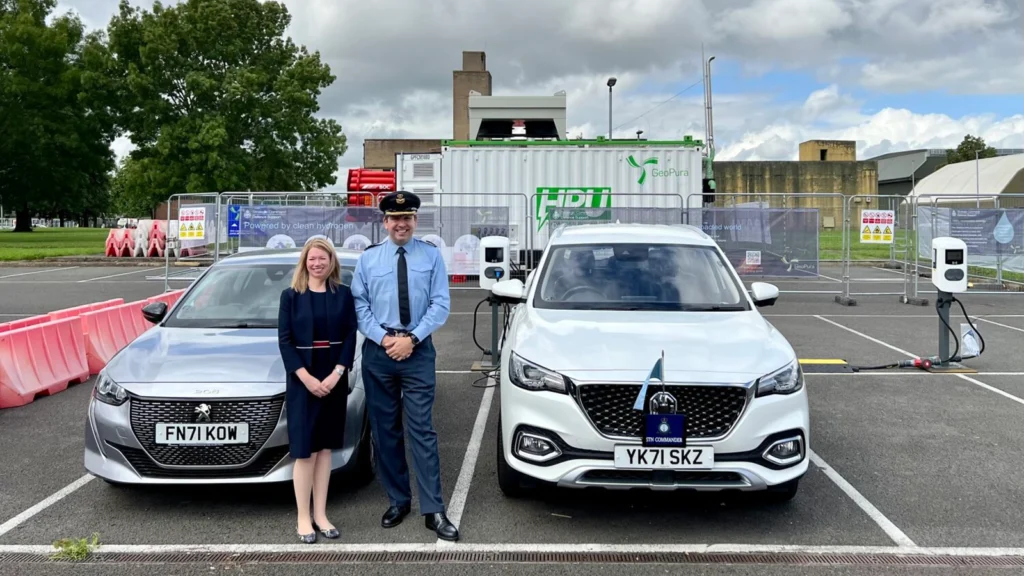
The UK Ministry of Defence (MOD) is making strides in its sustainability journey, launching hydrogen-fuelled charging stations for its growing electric vehicle (EV) fleet.
The trial has been led in collaboration with renewable energy expert GeoPura, beginning at RAF Leeming in 2023 and has since expanded to four more military bases, including Devonport Naval Base, Merville Barracks, RAF Northolt, and HMS Excellent.
The trials are key in supporting the MOD’s mission to achieve their zero-emission vehicle goals by 2027, all whilst tackling operational challenges presented by current national grid limitations.
Pushing forward with hydrogen power
At the heart of this initiative are the Hydrogen Power Units (HPUs), which work in a similar way to diesel generators, but convert hydrogen into electricity, with zero emissions, to deliver rapid EV car charging, off grid power, backup power and more.
The MOD sees hydrogen as a critical technology to strengthen resilience, particularly in remote or off-grid locations – typically where you will find most military bases.
“In embracing innovative solutions like hydrogen power, the Ministry of Defence has reaffirmed its commitment to sustainability and improving operational efficiency,” said Air Vice-Marshal Rich Pratley.
The trials have already generated enough electricity to power roughly 120,000 miles of EV travel. The results also highlighted hydrogen fuel’s potential to support both domestic and overseas operations, particularly in places where grid access is challenging or compromised.
Expanding beyond RAF Leeming
Originally rolled out at RAF Leeming, the hydrogen-charging units have quickly made their way to other key military bases, including HMNB Devonport and HMS Excellent. This wider rollout came after the initial success at Leeming, where the MOD saw the clear benefits of using hydrogen to alleviate the limitations posed by the existing grid infrastructure.
As the project progressed, the hydrogen-powered units, supplied by GeoPura, enabled seamless and rapid EV charging – offering zero-emission energy on-demand without the constraints of grid connectivity.
Group Captain Gareth Prendergast, who oversaw the early stages at RAF Leeming, was quick to point out hydrogen’s operational advantages, noting that the flexibility offered by this energy solution improves resilience both at home and in international deployments.
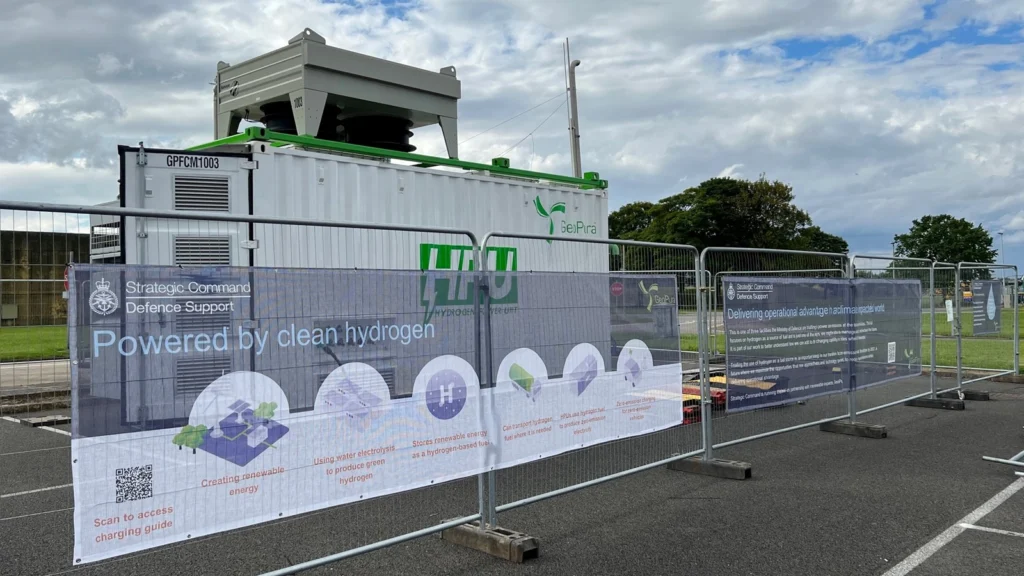
GeoPura’s role in the project
GeoPura, the renewable energy company behind the hydrogen generators, delivered reliable, off-grid charging solutions, ensuring that the MOD’s EV fleet stays mission-ready even in off-grid environments.
Matt Barney, Chief Hydrogen Business Officer at GeoPura, commented: “Our generators ensure rapid charging for the MOD, providing a zero-emission solution that meets the unique demands of military operations, unrestricted by grid limitations.”
Hydrogen Power Units in action
The HPUs in these trials convert hydrogen gas into electricity, enabling EV charging through fast-charging points. The trials demonstrated that hydrogen power can bypass the need for grid connectivity, making it the perfect solution for military bases that are nearly always remote, off-grid, or subject to grid delays.
Not only do HPUs provide consistent power for the MOD’s EV fleet, but they also enhance operational flexibility. Air Commodore Ange Baker echoed these sentiments, describing hydrogen as a vital part of Defence’s future energy mix, ensuring both sustainability and resilience.
Future of hydrogen within the UK military
Following the success of these trials, the MOD plans to integrate hydrogen across an even wider range of applications. Defence Support, which leads the trials, has confirmed that work with GeoPura and other partners will continue, with fully hydrogen-powered vehicles now a focus for future military use.
The long-term vision for the MOD includes using hydrogen to power larger military equipment and provide off-grid energy solutions for the most demanding environments. In the near future, hydrogen could become a cornerstone of Defence’s energy strategy, ensuring long-term sustainability and operational independence.
These hydrogen trials are laying the foundation for, hopefully, an operational revolution. The Defence Support organisation is actively planning further trials and partnerships, exploring the potential for hydrogen to power everything from military vehicles to off-grid installations in remote areas.
As the MOD continues to push for greener technologies, hydrogen power is set to be a critical component in achieving the government’s 2027 emissions targets, and what is really exciting is: the MOD are looking at potentially developing fully hydrogen-powered military vehicles on the horizon.



